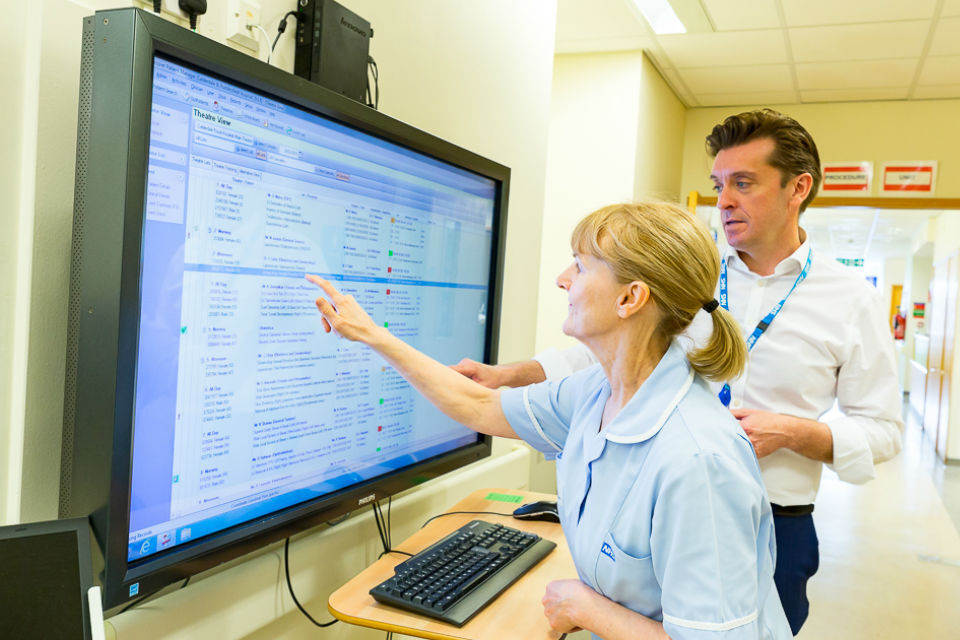Pioneering AI Technology to Transform NHS Safety Standards
In a dimly lit hospital room, a nurse hastily flips through reams of paperwork, scanning for anomalies in patient records. Just down the hall, a mother clutches her newborn, unaware that the NHS is on the verge of a digital revolution designed to prevent such critical oversights. This revolution, powered by artificial intelligence, seeks to ensure that incidents leading to unnecessary suffering become relics of the past. By employing cutting-edge AI technology to flag safety issues in real time, the NHS aims to usher in safer treatment protocols and enhance overall patient care.
Raising the Alarm: AI’s Role in Patient Safety
The stakes couldn’t be higher. Recent scandals involving unsafe practices in NHS maternity and mental health services have ignited public concern and prompted calls for a comprehensive overhaul of the system. Health and Social Care Secretary Wes Streeting has taken bold steps to reassure families that their care will be prioritized.
“While most treatments in the NHS are safe, even a single lapse that puts a patient at risk is one too many,” Streeting emphasized. “By embracing AI and introducing world-first early warning systems, we’ll spot dangerous signs sooner, launching rapid inspections before harm occurs.”
The new AI-enabled early warning system will analyze healthcare data in near-real time, raising alerts on emerging safety concerns. For instance, if the system detects higher-than-expected rates of stillbirths or neonatal deaths, it will trigger an immediate inspection, addressing issues before they escalate into tragedies. The framework is designed to work seamlessly across NHS databases, identifying patterns of care that deviate from established safety norms.
A Transformative Initiative
This ambitious project forms a central component of the government’s 10 Year Health Plan, aimed at shifting NHS services from an analogue framework to a more efficient digital model. This transformation is built on the NHS Federated Data Platform, which enables healthcare professionals to access crucial information without being bogged down by paperwork.
- Real-time data analysis to identify safety issues swiftly
- Immediate inspections triggered by AI alerts, reducing response times
- Enhanced quality assurance across all NHS services
The urgency of these changes comes in the wake of a swift national investigation into NHS maternity and neonatal services. This inquiry aims to provide accountability and drive improvements in care and safety. Professor Meghana Pandit, Co-National Medical Director for Secondary Care, highlighted the transformative potential of this initiative.
“The NHS in England will be the first country in the world to trial an AI-enabled warning system,” Pandit stated. “This will turbo-charge our ability to identify patient safety concerns, enabling us to respond rapidly and improve patient care.”
Insights from the Frontlines
Data collected during early implementations suggest that timely intervention can significantly reduce adverse outcomes. A recent study indicated that hospitals employing early detection systems reported a 30% reduction in preventable incidents over a six-month pilot period. Dr. Elena Harper, a healthcare analytics expert, remarked:
“AI has the potential to transform the traditional approaches we’ve relied on. Data-driven insights can lead to proactive measures rather than reactive ones, fundamentally changing the landscape of patient safety.”
This development comes as the Care Quality Commission (CQC) adapts its approach to monitoring and ensuring care quality. CQC Chief Executive Sir Julian Hartley spoke about this paradigm shift by stating:
“We will develop a stronger focus on all dimensions of quality, using data to spot and act on risks earlier. Our future inspectors will be equipped to conduct more thorough inspections while providing timely feedback to healthcare providers.”
Looking Ahead
As the new maternity outcomes signal system prepares to launch across NHS trusts this coming November, health authorities are optimistic. The aim is to replace time-consuming manual inspections with a technological framework that enables healthcare professionals to spend more time focusing on patient care rather than compliance. Public trust, once shaken, stands to be revitalized through this commitment to safety and quality.
While optimistic, experts also caution against over-reliance on technology. The human element remains irreplaceable in medicine. “AI is a tool, not a substitute for compassion and vigilance,” Dr. Juliette Wu, a healthcare ethicist, noted. “It enhances our capacity but does not replace our responsibility to care for each patient as if they were our own family.”
Ultimately, the success of this initiative will depend not just on the technology itself but on a holistic commitment to maintaining high standards across the board. With the growing focus on the patient and staff voice, the NHS is carving a path that promises transformative change for years to come. If successful, this pioneering AI system could serve as a model for healthcare systems worldwide, proving that with the right tools and dedication, it is possible to create a safer, more effective healthcare environment.
Source: www.gov.uk


